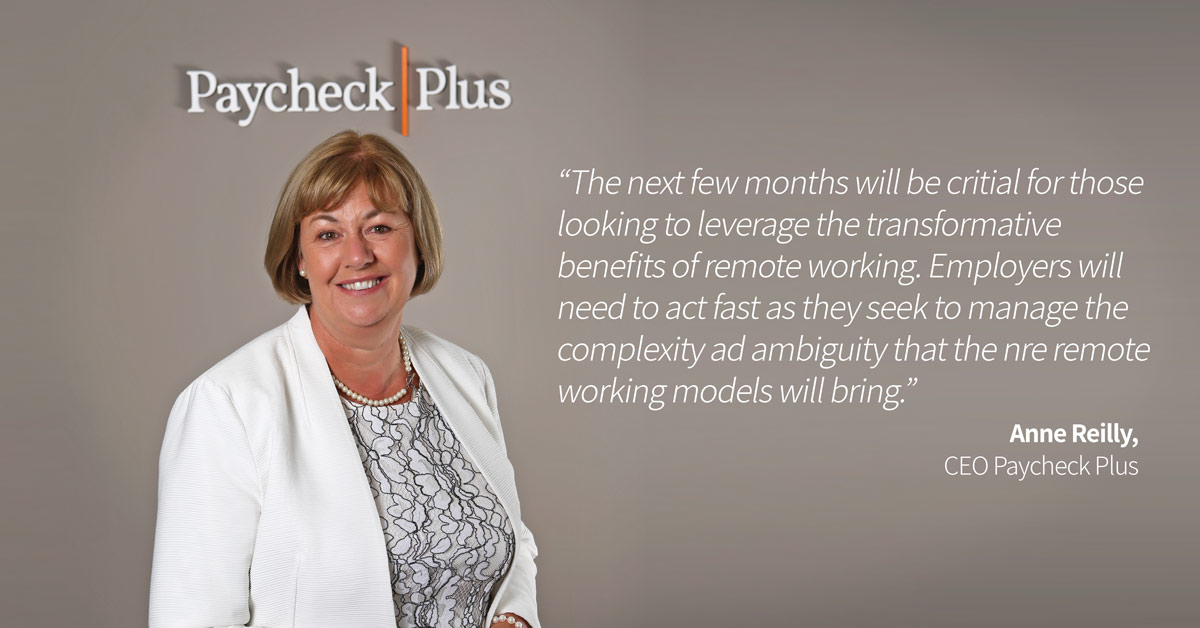
The Remote Work Problem

The Remote Work Problem
With lockdown restrictions easing and a new roadmap for recovery envisaged, employers across the country are making plans for their organisations’ post-COVID-19 work arrangements. But recent reports and studies show an alarming discord between employers’ and employees’ preferences regarding returning to the work place.
As we emerge from the shadow of the Covid-19 pandemic, one thing seems certain – how we view work has changed. A recent survey from McKinsey & Company shows that employees preference for onsite working has fallen 25% from pre Covid levels, while their preference for hybrid working has increased by 22%, with 52% of employees preferring a hybrid working model post pandemic.
In Ireland this predilection for remote working is particularly acute with Research from NUI Galway and the Western Development Commission indicating that 95 per cent of workers would like to work remotely to some extent after the crisis.
In contrast, many employers have either taken a different view or have been slow to act. According to an Ibec survey of the organisations with remote working currently in place, just over four out of five (81%) expect some form of hybrid working in their organisation following covid-19. While a survey from the Cavan Digital Hub and Local Enterprise Office suggests that only 39% of employers are actively looking, or expect to develop, a hybrid working model in the near future.
Already we have witnessed several instances of anti-remote working sentiment from high profile CEOs from organisations such as Goldman Sachs and Netflix. It seems likely that more leaders will be equally reluctant to make remote work a permanent option for their organisations.
The reasons for the discord are clear. From an employees’ perspective remote workers benefit, from more family time, no commute and an improved work/life balance. But from an employers’ vantage remote workers are far more difficult to oversee, motivate and communicate with, not to mention the legal and administrative ramifications. In fact according to a recent Harvard Business Review article almost 40% of managers have low self-confidence in their ability to manage workers remotely.
This issue is already being compounded by poor communication with 68% of employees griping that their employers are communicating vaguely, or not at all, about the future of post-pandemic work. And if reports from McKinsey & Company are to be believed the stakes could not be higher, as 30% of employees say they are likely to switch jobs if they are required to work fully on-site.
So what can employers do?
Firstly, employers must acknowledge that remote and hybrid working are here to stay. And that’s no bad thing, as evidence suggests that remote workers are 35-40% more productive, they produce 40% fewer quality defects, they have 41% lower absenteeism rates and can bring about a 21% increase in profitability.
Secondly, employers need to develop a remote working policy that aligns with their own HR plan, IT policies and wider corporate strategy. Employers are encouraged to pay close attention to the legal and administrative implications of any such policy as the ramifications of a poorly prepared remote working policy can be significant.
The research thus far indicates that employees are significantly happier, and more productive when hybrid or remote models are embraced. Altogether this would suggest that employee retention rates will be considerably enhanced when organisations adopt these new models. While it is understandable that employers may be reluctant to change pre-existing workplace practices, which worked well prior to the pandemic, but increasingly the evidence is becoming clear that progressive employers who are willing to change will reap substantial benefits.
For a hybrid model to work, organisations will need to redesign their policies and procedures and adopt a remote-first culture. The next few months will be critical for those looking to leverage the transformative benefits of remote working. Employers will need to act fast as they seek to manage the complexity and ambiguity that new remote working models will bring. The transformational potential is enormous and those who sufficiently prepare for the challenges ahead will have the chance to permanently change how we work.
Articles Related to Remote Work:
Supporting Your Payroll Processing Team During Lockdown
Paycheck Plus, Your Payroll Processing Team
Paycheck Plus provide award-winning Irish payroll services. Our ISO and ISAE 3402 accredited payroll bureau serves businesses across Ireland and the UK, with industry-leading accuracy levels, strict levels of confidentiality and top-rated payroll processes. Our highly experienced payroll processing experts can help you to navigate all aspects of local taxation and help ensure legal compliance.
To ensure payroll accuracy or for more information request a callback or call our Irish payroll bureau on +353 (0) 1 905 9400.
